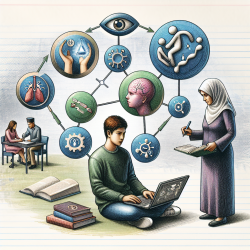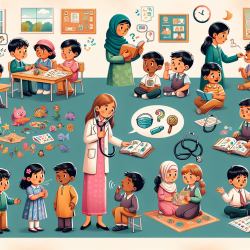The Mindful Games Activity Cards, authored by Susan Kaiser Greenland with Annaka Harris, offer a unique approach to teaching mindfulness to children and teens. While designed with young ones in mind, these games are equally beneficial for adults who play significant roles in children's lives—be it parents, teachers, therapists, or caregivers. This blog explores some of these engaging activities and how they can foster mindfulness and life skills in a fun and interactive way.
The Essence of Mindful Games
Mindful Games are not just about calming down; they aim to cultivate awareness of the present moment without judgment. The games teach six core life skills: focusing, quieting, seeing, reframing, caring, and connecting. Each skill supports the development of a steady, flexible attention span that is crucial for personal growth.
Key Activities from Mindful Games
- Mindful Breathing: This activity involves lying down comfortably and paying close attention to breathing patterns. It helps participants relax and become aware of their breathing without any judgment or expectation.
- Three Good Things: Encourages children to acknowledge their feelings during disappointments while also identifying three positive aspects of their lives. This game teaches gratitude alongside emotional awareness.
- Slow and Silent Walking: Participants walk slowly from one marked line to another while paying attention to each step. This activity enhances concentration and awareness of bodily sensations.
- The Three Gates: Before speaking, participants ask themselves if their words are true, necessary, and kind. This game fosters thoughtful communication and empathy.
- Appreciation Chain: Children write notes of appreciation on paper strips to create a decorative chain. This activity encourages gratitude and community building.
The Impact of Mindfulness on Young Minds
The benefits of mindfulness extend beyond immediate relaxation. These activities help children develop a kind inner voice that acknowledges their feelings without judgment. By practicing mindfulness regularly, kids learn to navigate their emotions with wisdom and compassion. The transformative power of these games lies in their ability to make mindfulness accessible through play.
Tips for Leading Mindful Games
- Create a Comfortable Environment: Ensure the space is quiet and free from distractions before starting any game.
- Use Your Natural Voice: Guide the children using your regular speaking voice rather than adopting a meditative tone.
- Encourage Relaxation: Remind children to relax their bodies regularly during activities.
- Acknowledge All Feelings: Reinforce that there is no right or wrong way to feel during these activities.
Susan Kaiser Greenland's Inner Kids program has made significant strides in bringing mindful awareness to children across various settings. To explore more about her work or delve deeper into the curriculum, visit her website at www.susankaisergreenland.com.
If you're ready to introduce these transformative practices to the young ones in your life, consider starting with one of these engaging games today. For more information on implementing these activities effectively, please follow this link.










